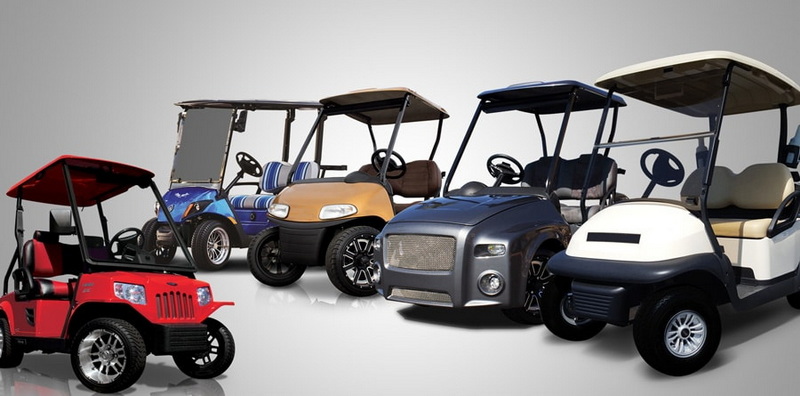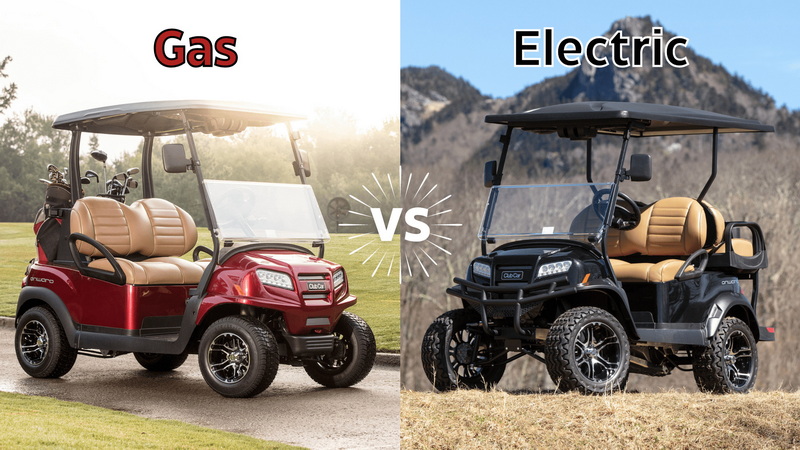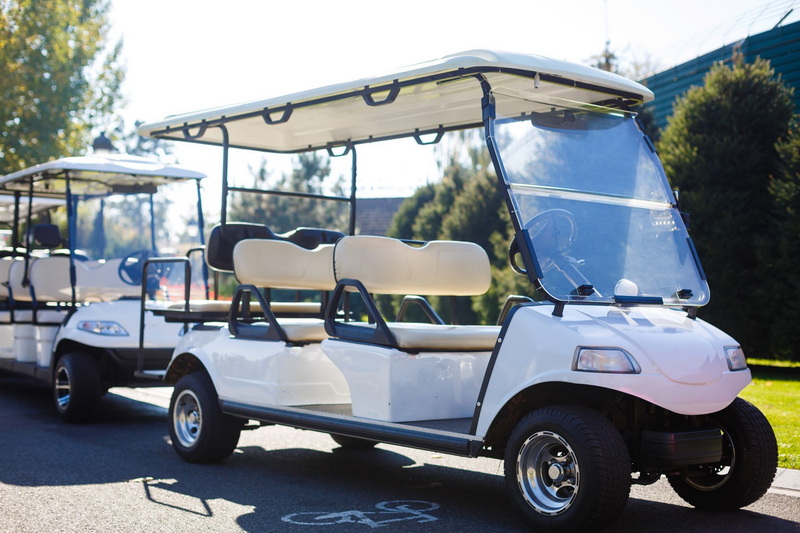Content Menu
● Understanding Golf Carts
>> Gas Golf Carts
>> Electric Golf Carts
● Factors to Consider When Choosing
>> Course Size and Terrain
>> Frequency of Use
>> Environmental Concerns
>> Budget
>> Maintenance Preferences
● Popular Models Comparison
● User Experiences
● Conclusion
● Related Questions
>> 1. What is the average lifespan of a golf cart battery?
>> 2. How much does it cost to maintain a gas golf cart?
>> 3. Can I convert my gas golf cart to electric?
>> 4. What are the best brands for electric golf carts?
>> 5. Are there any tax incentives for buying an electric golf cart?
When it comes to choosing a golf cart, one of the most significant decisions you'll face is whether to buy a gas or electric model. Each option has its own advantages and disadvantages, which can affect your overall experience on the golf course. In this article, we will explore the differences between gas and electric golf carts, helping you determine which type is best suited for your needs.

Understanding Golf Carts
Golf carts are small vehicles designed primarily for transporting golfers and their equipment around the golf course. They are available in two main types: gas-powered and electric. Understanding the basic mechanics and features of each type is essential before making a purchase.
Gas Golf Carts
Gas golf carts are powered by internal combustion engines that run on gasoline. These carts tend to have a higher power output compared to their electric counterparts, allowing for faster speeds and longer ranges.
Advantages of Gas Golf Carts:
- Longer Range: Gas carts can typically travel longer distances without needing to refuel, making them ideal for larger courses or extended use.
- Faster Refueling: Refueling a gas cart takes only a few minutes at a gas station, whereas charging an electric cart can take several hours.
- Powerful Performance: Gas carts often offer better acceleration and can handle rough terrain more effectively.
Disadvantages of Gas Golf Carts:
- Higher Operating Costs: Gasoline prices fluctuate, which can lead to increased operating costs over time.
- Maintenance Needs: Gas engines require regular maintenance, including oil changes and engine checks.
- Environmental Impact: Gas-powered carts emit pollutants, contributing to environmental concerns.
Electric Golf Carts
Electric golf carts are powered by batteries that need to be charged regularly. These carts have become increasingly popular due to advancements in battery technology.
Advantages of Electric Golf Carts:
- Lower Operating Costs: Electricity is generally cheaper than gasoline, leading to lower long-term costs.
- Quiet Operation: Electric carts operate quietly, enhancing the golfing experience without disturbing other players or wildlife.
- Eco-Friendly: Electric models produce zero emissions, making them a more environmentally friendly option.
Disadvantages of Electric Golf Carts:
- Limited Range: Electric carts typically have a shorter range compared to gas models, requiring more frequent charging.
- Charging Time: Charging an electric cart can take several hours, which may be inconvenient if you need to use it frequently.
- Battery Replacement Costs: Over time, batteries may need replacing, which can be a significant expense.

Factors to Consider When Choosing
When deciding between gas and electric golf carts, consider the following factors:
Course Size and Terrain
If you frequently play on larger courses or rugged terrain, a gas cart may be more suitable due to its power and range. Conversely, if you play on smaller, flatter courses, an electric cart might suffice.
Frequency of Use
For those who use their golf cart daily or for extended periods, the efficiency and convenience of a gas cart may be beneficial. However, if you only use it occasionally, an electric model could be more cost-effective.
Environmental Concerns
If you're environmentally conscious and prefer a cleaner option, an electric golf cart is the better choice due to its zero emissions.
Budget
Consider both the initial purchase price and long-term operating costs when determining your budget. Electric carts often have lower operating costs but may have higher upfront costs depending on the model.
Maintenance Preferences
If you prefer low-maintenance options, electric carts may be appealing as they require less frequent maintenance than gas models.

Popular Models Comparison
To help you make an informed decision, here's a comparison of some popular models in both categories:
| Feature | Gas Golf Cart Model | Electric Golf Cart Model |
|-----------------------------|---------------------|--------------------------|
| Brand | Club Car | EZGO |
| Engine Type | 14 HP Gas Engine | 48V Electric Motor |
| Top Speed | 19 mph | 15 mph |
| Range | 100 miles | 30 miles |
| Refueling/Charging Time | 5 minutes | 6 hours |
| Price Range | $6,000 - $10,000 | $7,000 - $12,000 |
User Experiences
User experiences can greatly influence your decision. Here are some testimonials from golf cart owners:
John D., Gas Cart Owner:
"I love my gas golf cart! It gets me around the course quickly without worrying about charging. I can play multiple rounds without needing to refuel."
Sarah L., Electric Cart Owner:
"I chose an electric golf cart because I wanted something quieter and more eco-friendly. I love how easy it is to maintain and how much I save on fuel."
Conclusion
Choosing between a gas or electric golf cart ultimately depends on your individual needs and preferences. If you prioritize power and range for extensive use on larger courses, a gas cart may be your best option. However, if you value lower operating costs and environmental impact, an electric model could be the way to go.
Consider your golfing habits, budget constraints, and personal preferences before making your final decision. Both types of golf carts offer unique benefits that can enhance your golfing experience.

Related Questions
1. What is the average lifespan of a golf cart battery?
The average lifespan of a golf cart battery is typically between 4 to 6 years with proper maintenance.
2. How much does it cost to maintain a gas golf cart?
Maintenance costs for gas golf carts can vary but generally range from $200 to $500 annually depending on usage and service frequency.
3. Can I convert my gas golf cart to electric?
Yes, it is possible to convert a gas golf cart to electric; however, this process can be complex and costly.
4. What are the best brands for electric golf carts?
Some of the top brands for electric golf carts include EZGO, Club Car, and Yamaha.
5. Are there any tax incentives for buying an electric golf cart?
In some regions, there may be tax incentives or rebates available for purchasing electric vehicles; it's best to check with local regulations for specifics.











































